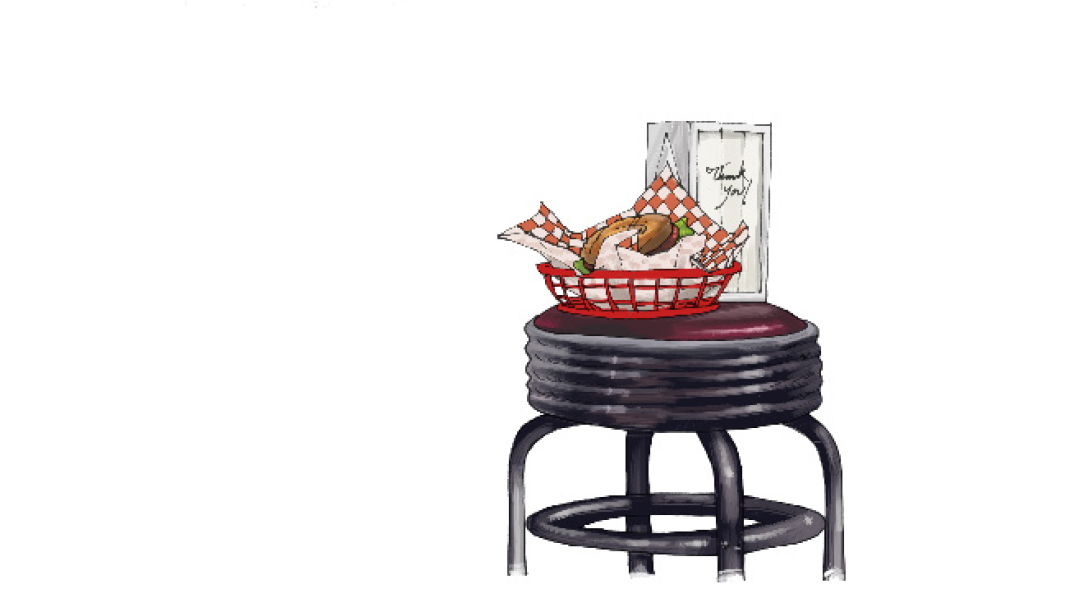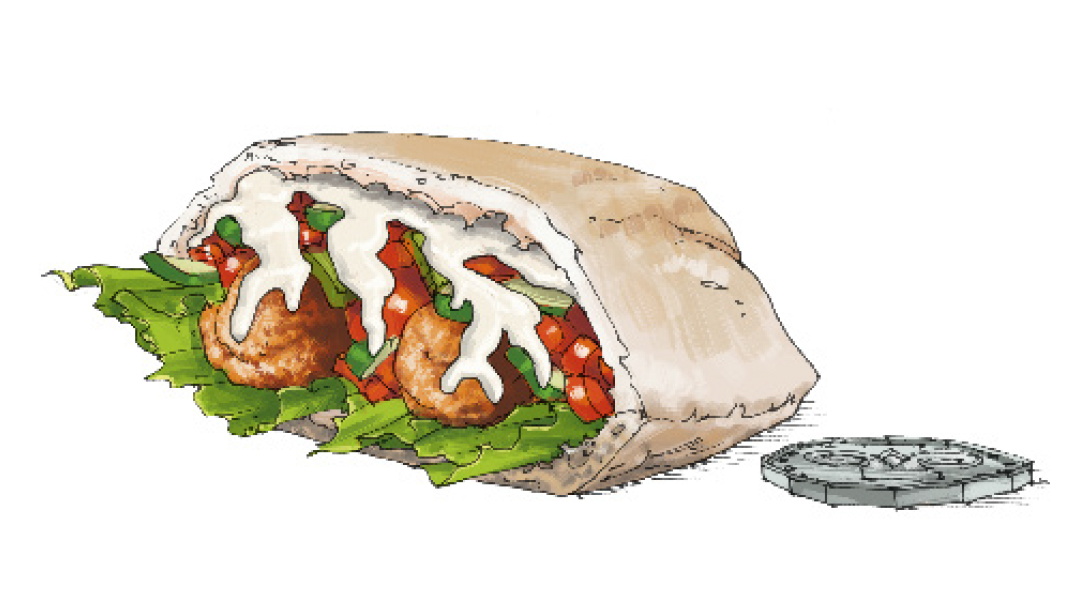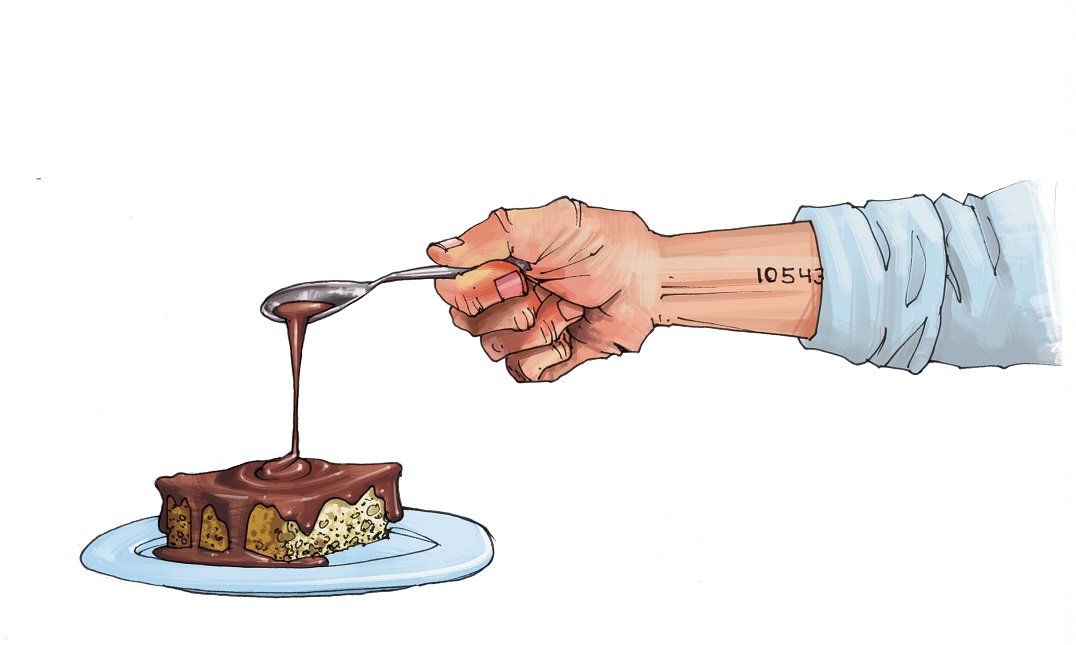Dining Out

At first, I pitied his abnormal childhood. I couldn’t help comparing his memories to my own

"My mom doesn’t cook much, so we ate out all the time when I was growing up,” my chassan said nonchalantly. “It was great.”
We were sitting in Ken’s Diner in Skokie, Illinois, and I was doe-eyed and horrified all at once.
“This is the taste of my childhood right here,” he said between bites of his burger.
I looked down at my chicken salad, stupefied. At 20 I had yet to partake in the daily “dysfunction wars” of today. Widespread social media access, increased health awareness, and our own thrashing insecurities have created a situation where mothers are constantly second-guessing their own shortcuts. (I’m a completely dysfunctional mother if I feed my children instant noodle soup… Will Child Protective Services show up if I serve fish sticks for dinner two nights in a row?)
But I was human, and the thought of eating out for dinner every night was appalling. I wondered how a restaurant could provide the same emotional nourishment as a home cooked meal? Poor chassan.
Oddly, he seemed thrilled with his childhood dinner situation. He regaled me with tales of Chicago restaurants that had come and gone. When I made meatballs during shanah rishonah, he didn’t compare them to a beloved family recipe—instead he gave me the ultimate compliment by saying they tasted just like Mitzuyan’s. He’d wax poetic about Tel Aviv Pizza’s mystifyingly perfect pies, or the time the owner left him with the keys and told him to lock up. He described in detail the moment he tasted a Burger Buddy from Ken’s for the first time.
At first, I pitied his abnormal childhood. I couldn’t help comparing his memories to my own—my mother’s vegetable soup simmering softly, my grandmother’s strawberry tapioca doled out in delicate glass bowls. Although he has equally warm recollections of some signature dishes his mother and grandmother made, the majority of his food memories seemed to take place in restaurants. In fact, after the Holocaust his grandparents built a successful bakery and deli in Chicago. Eateries run in his blood.
It appears there’s a live wire ricocheting around in the brain that likes to package love and food in one twine bundle—as if some renegade neuron wants to lend a concrete sense of taste, smell, and texture to the bonding of hearts. I guess it makes sense that when people reminisce about their mother’s cooking, they confuse the slow stir of the wooden spoon and the heaping plates of wafting food with the ultimate form of love. But brains can be tricky and the truth is love manifests itself in a billion ways.
My thinking has changed over the years. This may come off as radical to the prima balabustes, but I now believe there’s no one way to serve dinner. There’s no one way to sit at the table and connect. His burger was my grandmother’s tapioca, and he’s no worse off because of it.
It wasn’t about what my mother-in-law and husband were eating or where they were sitting, it was about the sharing the moment.
When we heard the news that Slice of Life closed recently, I didn’t scoff at my husband’s genuine twinge of sadness. It wasn’t just the food, it was the memories, the backdrop of his own growth, measured week by week, year by year. Restaurants didn’t raise him, but he grew up in their booths, and enmeshed within a wholly happy childhood are vinyl chairs and Formica tables and greasy pizza trays—and that’s ok.
Apologies to any self-righteous shamers out there, but home-cooked meals only go so far when it comes to raising happy, well adjusted, successful kids. They can’t replace a warm relationship or a mother who keeps her cool while always having her kids’ backs. They can’t replace open communication and a healthy balance of boundaries and bounty, rules and space. Home cooked meals aren’t the end—they are a means, one small part of a much a larger picture.
Surprisingly, although he still occasionally enjoys dining out, my husband is a full-blown health nut today—I’m talking grass-fed meat and hormone-free chicken and chia-avocado-spinach shakes—but my mother-in-law still doesn’t cook much. When we visit, she takes the kids to the same restaurants my husband went to as a child. They don’t huddle around as Bubby Stirs Pots—but they also don’t see Bubby Stressed Out. The time they spend with her is mutually enjoyable, and she is one of their favorite people on earth, rivaled only by their Nana who happens to enjoys cooking up a storm. With each visit we set new memories on top of the old ones—and we’ve accumulated quite a number over the years. Generations of warmth, food, connection (and the occasional tantrum that comes along with booth seating), glistening in multicolored layers.
(Originally featured in Mishpacha, Issue 830)
Oops! We could not locate your form.













